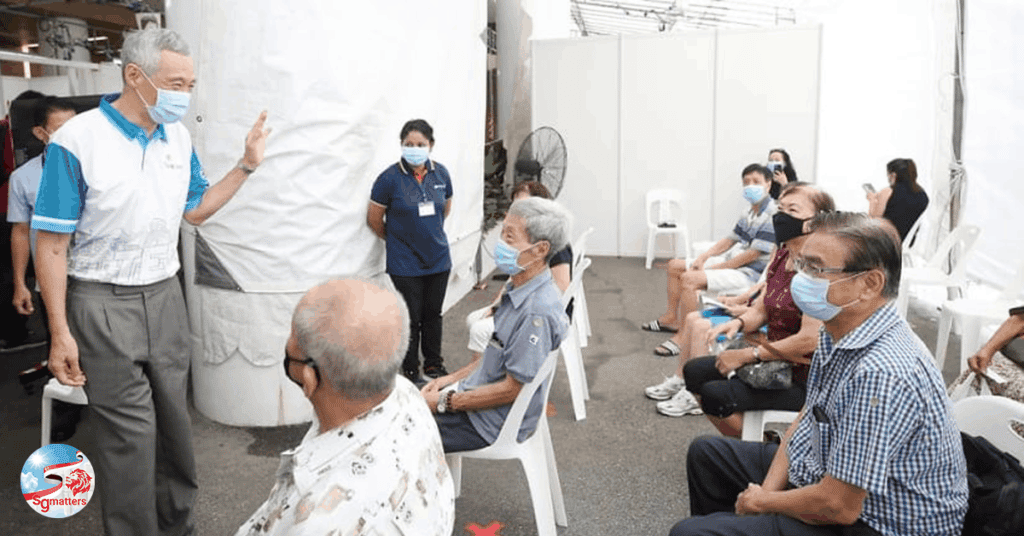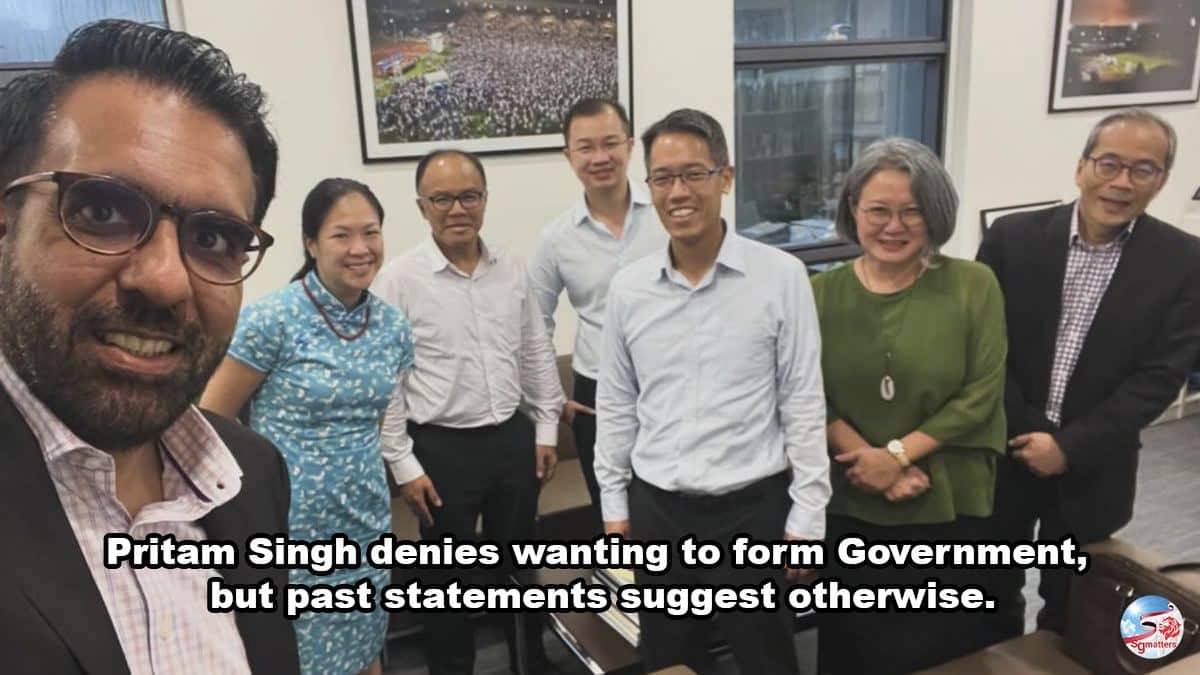Health Minister One Ye Kung described the sharp spikes in COVID-19 cases as ‘rite of passage‘ as Singapore moves towards living with the virus as endemic. His description incurred displeasure among some Singaporeans who rejected this ‘rite of passage’ outright with much indignation. But they did not understand.
A covid-resilient Singapore is one where the virus is not the big threat that it is today. This happens when antibodies against the virus are widespread in the community.
How do antibodies become widespread in the community?
There are 2 ways. Through widespread vaccination and through natural infections.
Both vaccination and natural infection produce immunity against the virus. But the immunity conferred on a person by vaccination is different from the immunity acquired through natural infection.
The mRNA vaccines teach the body to recognise the spike proteins on the surface of the virus, but that could change as the virus mutates, thereby rendering the vaccines less efficacious.
Getting an infection, on the other hand, teaches the body to recognise all parts of the virus (source: Prof Ooi Eng Eong) including the core that cannot change, and is thus effective against any mutation.
The best protection therefore is when a vaccinated person has an asymptomatic infection (though this is not something we can choose).
If you’re the minority still hesitating about getting vaccinated, get vaccinated now. It may not protect you from infection, but it is excellently good at protecting you from developing a serious illness.
If you’re vaccinated and infected, you take only a few days to recover. About 7 days according to a MOH update. You now also have immunity against all mutations of the virus
An unvaccinated person will require 14 days if he does not develop a serious illness.
𝐍𝐨 𝐜𝐨𝐮𝐧𝐭𝐫𝐲 𝐠𝐞𝐭𝐬 𝐭𝐨 𝐭𝐡𝐞 𝐭𝐫𝐮𝐥𝐲 𝐞𝐧𝐝𝐞𝐦𝐢𝐜 𝐬𝐭𝐚𝐭𝐞 (where the virus is circulating around people without being a huge threat) 𝐰𝐢𝐭𝐡𝐨𝐮𝐭 𝐠𝐨𝐢𝐧𝐠 𝐭𝐡𝐫𝐨𝐮𝐠𝐡 𝐰𝐚𝐯𝐞𝐬 𝐨𝐟 𝐭𝐫𝐚𝐧𝐬𝐦𝐢𝐬𝐬𝐢𝐨𝐧. This is how antibodies against the virus become widespread in the community, thus making the virus less of a threat. Health Minister Mr Ong described these waves of transmission as ‘rite of passage’. These waves of transmission are an inevitable event to transit to the endemic state.
The latest tighter restrictions in response to the spikes are to slow down transmission. Key words: ‘slow down’. Not stem transmission.
Endemic Covid-19 means the virus will always be circulating among us. So there will always be transmission.
Because our population is largely unexposed to the virus, there will be many people falling sick at the same time if we do not slow down transmission. We need to slow down transmission so that we do not have more people sick at one time than the healthcare system can cope.
So, instead of having x number of cases in 1 week, the cases are spread over more than one week. This reduces the load on our healthcare system and ensures that every sick person receives the best care.
We slow down transmission because there are still 80,000 seniors who are not vaccinated and their lives matter. Hopefully, they will be persuaded to vaccinate.
Serious infection rates among the elderly are striking. Of infected unvaccinated people aged 80 or older, 15 per cent of them had to be treated in intensive care or died, compared to 1.79 per cent of the same age group who were vaccinated.
We slow down transmission to allow vaccinated seniors time to get their booster jab and raise their protection level.
Meanwhile, community care facilities and community treatment facilities are scaled up to take care of covid patients.
Once we recognised that the virus wasn’t going to go away from the world, and that there could be no hunkering down to wait until it was gone, we took steps to prepare to live with it as endemic. We accepted the new reality.
We need to understand that only after the virus has gone through the community will we reach the truly endemic state. The rite of passage, so to speak. And this means waves of transmissions.
We need to be mentally prepared as much as the authorities have to be operationally prepared because everyone has a part to play.
The government’s aim is to reach the endemic state as safely as possible and minimising the number of deaths.
We have one of the lowest death rates in the world. This is testimony of how much the government care for the lives of people and the enormous effort put in. And the latest restrictions are precisely because lives matter. Many of those who had died are seniors and unvaccinated. We have to do our best to persuade the 80,000 unvaccinated seniors to get vaccinated.
Moving towards the endemic state safely requires each and every one of us to do our part, minimise our social interactions, observe all the safe management measures and isolate ourselves if we think we are infected.
Dr Alex Cook from Singapore’s Saw Swee Hock School of Public Health said that Singapore’s outbreak was a “test of the government’s and the people’s resolve” in the face of an unprecedented rise in cases, even if the majority were mild.
The outbreak is a signal that in this post-pandemic liminal state, we must pass through a potentially large wave of mostly mild infection before we can reach endemic COVID, he said.
We are being tested as one people. Let’s unite and work together, pass the test and come forth as gold.
Jiayou, Singapore! ![]()
![]()





